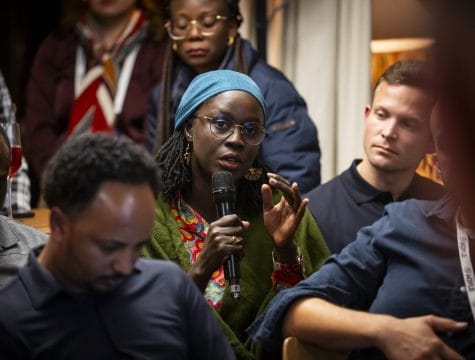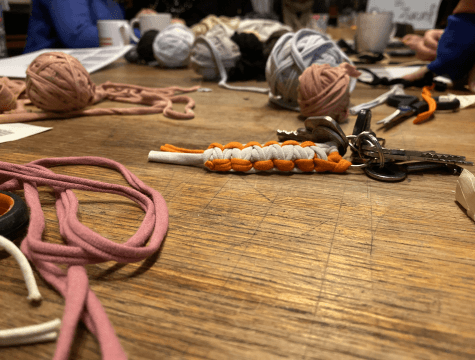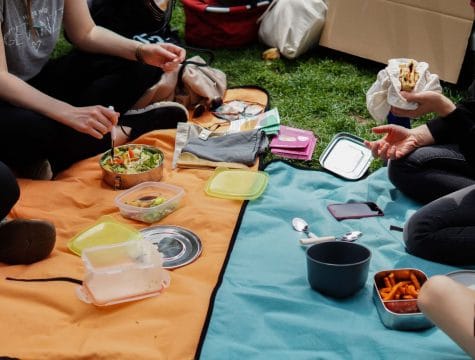On the 26.02 Circular Berlin together with the partners Berlin Partner für Wirtschaft und Technologie, visitBerlin, HealthCapital, and BeShared hosted our third multi-stakeholder workshop on the topic of Circular Economy potentials for Food and Biomass streams in Berlin and Berlin religion. The challenges of food waste, unsustainable agriculture and alternative ways of dealing with the biomass were addressed during the workshop. The main industry focus was on the Berlin hospitality and restaurants sector and how the circular economy vision could be introduced in its daily practices. We were delighted to host more than 70 professionals from diverse groups related to the sector and to conduct a dialog between local food producers, zero-waste caters and organization working with the food waste prevention, and connect this discussion with the sustainable approach for bioeconomy.

Through the preparation, we realized that the topic is not only very crucial for Berlin, but also very sensitive. A lot of work has been already done in Berlin in the field of food waste prevention, but the wasteful behavior still dominates. The nexus of the nutrients between the biomass and the agriculture is not widely explored, which is a big hurdle towards sustainable agricultural policy. Moreover, the lack of connectivity between food producers and consumers (like retail, restaurants) in Berlin city and region does not allow to match demand and supply for sustainable production.
On the other hand, soft measures like education and communication were widely discussed. Introducing non-wasteful learning practices in the education system of young chefs is a very essential measure. And of course, the question of strict hygiene regulations was touched that in most cases leads to the direct food waste was a big discussion topic.

One more important topic we tried to bring in the workshop is the innovative approach to use food waste by-products or unavoidable food waste like vegetable peels. Imagine you can optimize your food supply, use zero-waste cooking practices but some leftovers such as egg shells are there. One of the hurdles was the situation of centralized infrastructure that cannot allow sorting precisely the streams and in most cases contaminating them. It was mentioned very often that to increase the value of such biomass is possible only if you work directly with the owner of the biomass, like directly with the restaurants. Moreover, the topic remains very unexplored and unclear for many food producers and also for researchers:
- What are the streams?
- How much of such biomass could be actually valorized?
- How to focus not only on the “market-oriented product” but the product that is possible to return back to the bio-loop to close the nutrients gaps?
These are the questions that require grounded research and analysis.
However, for the bottom line, we all agree that the categorization of Biomass as Bio-Waste is inappropriate. It has to be treated as other valuable material, fostering financial incentives and sustainability requirements to be applied rather than waste treatment practices.

The full presentation results you can take a look here or in the SlideShare.




